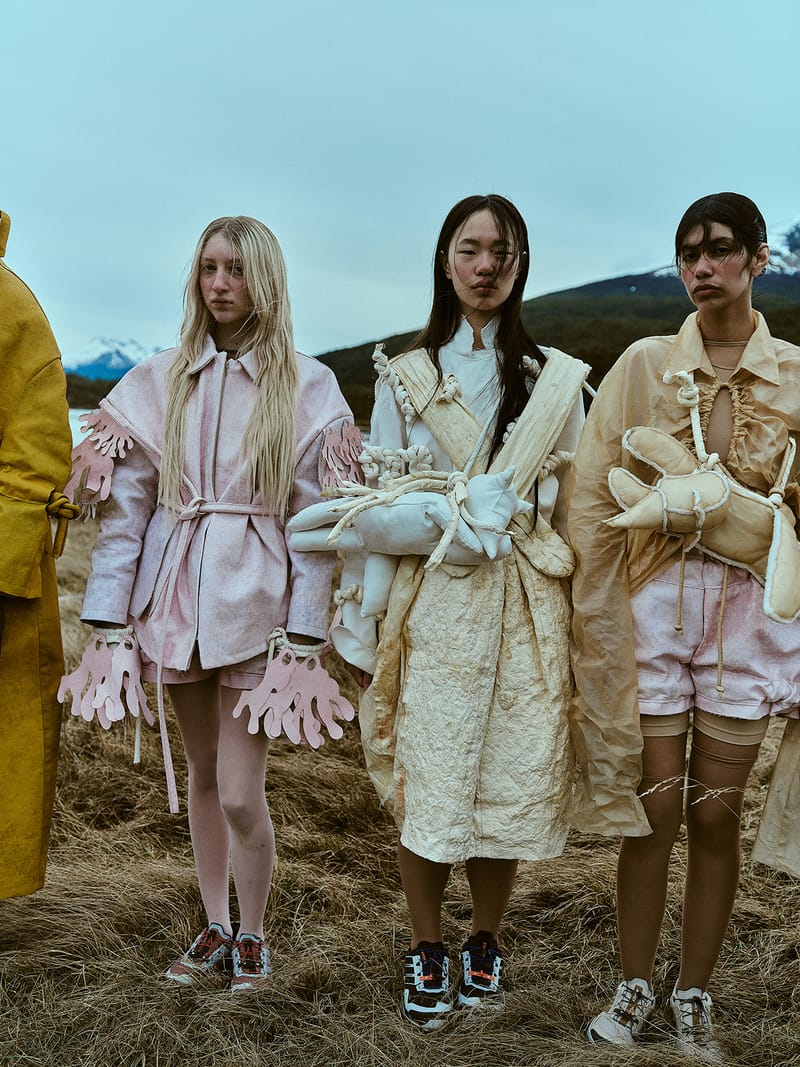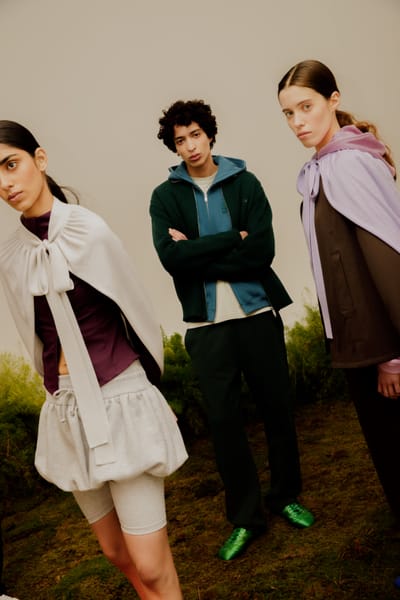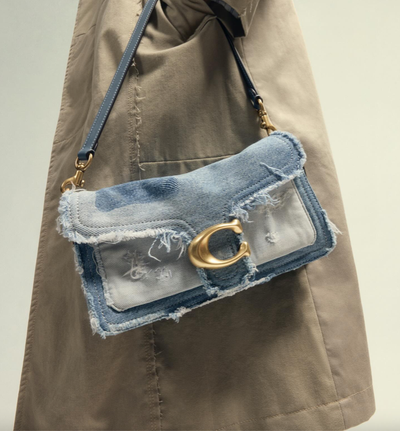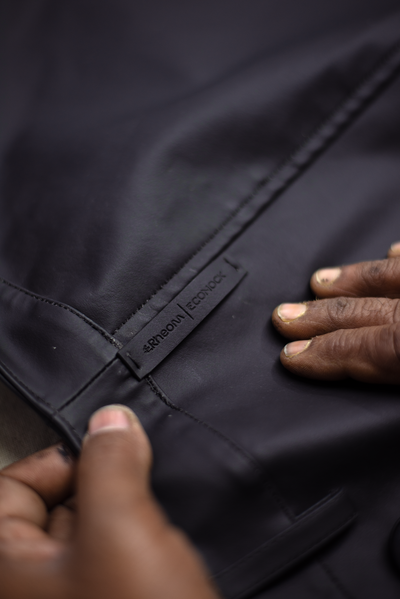When fashion meets the edge of the world, something more than a collection takes shape. In Ushuaia, where land and ice converge under the southern winds, Nous Étudions unveiled El fin del mundo, principio de todo (The End of the World, Beginning of Everything), a collaboration with Polybion that reimagines how design, biology, and territory can converge.
As reported by Vogue México in its feature “End of the World. Beginning of Everything: A Collection that Amplifies its Connection with Nature and Imperfect Fashion,” the project began with designer Romina Cardillo’s expedition to Antarctica — an experience that deepened her bond with nature and transformed her creative philosophy. It was no longer just about fashion as message, but fashion as living material.
That journey led Cardillo to Polybion, the Mexican biotechnology company behind Celium™ — a biomaterial cultivated from bacterial cellulose derived from agroindustrial fruit waste. What started as an exchange of ideas became a shared experiment in adaptation, shaping Celium™ to meet the expressive and structural needs of fashion design.
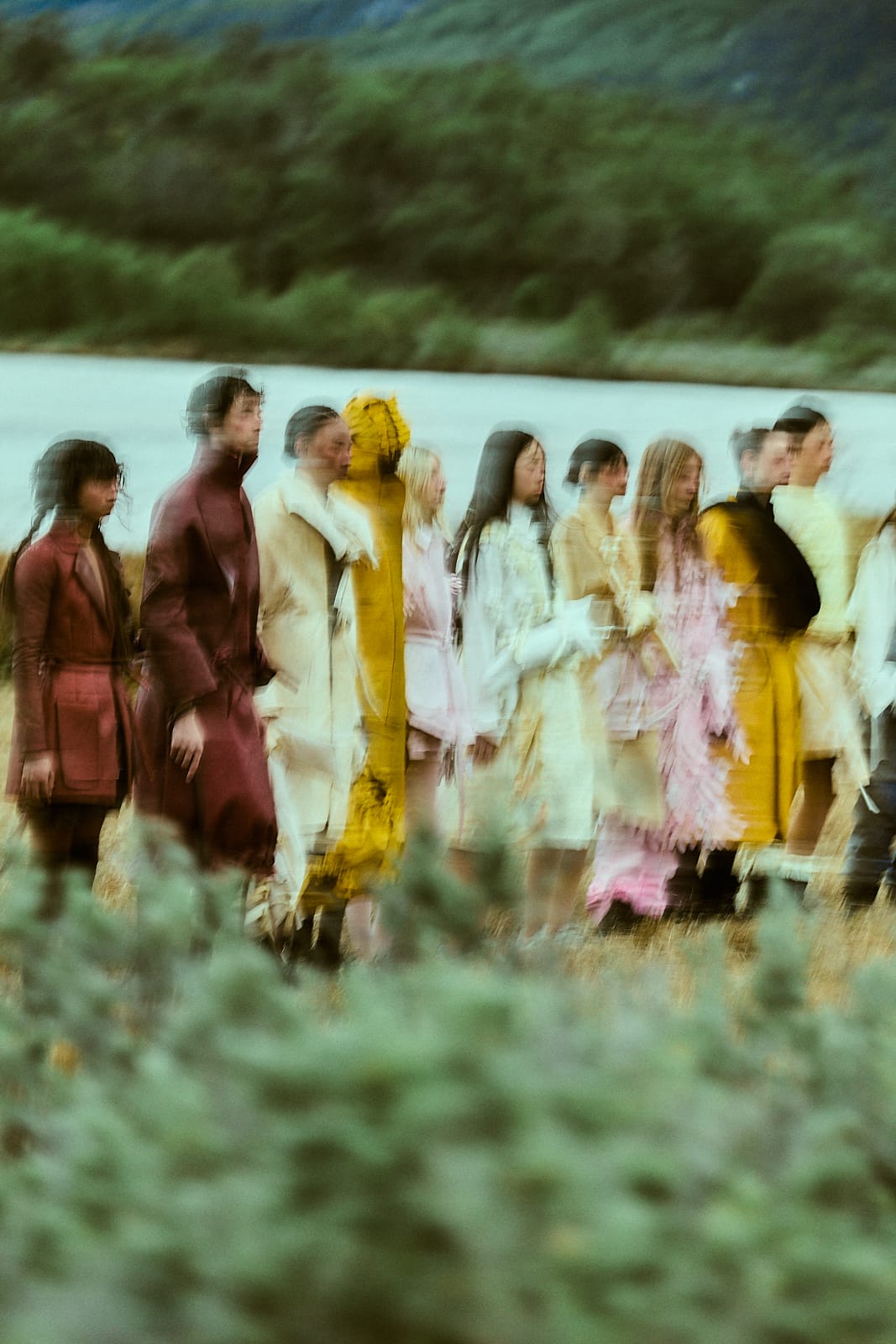
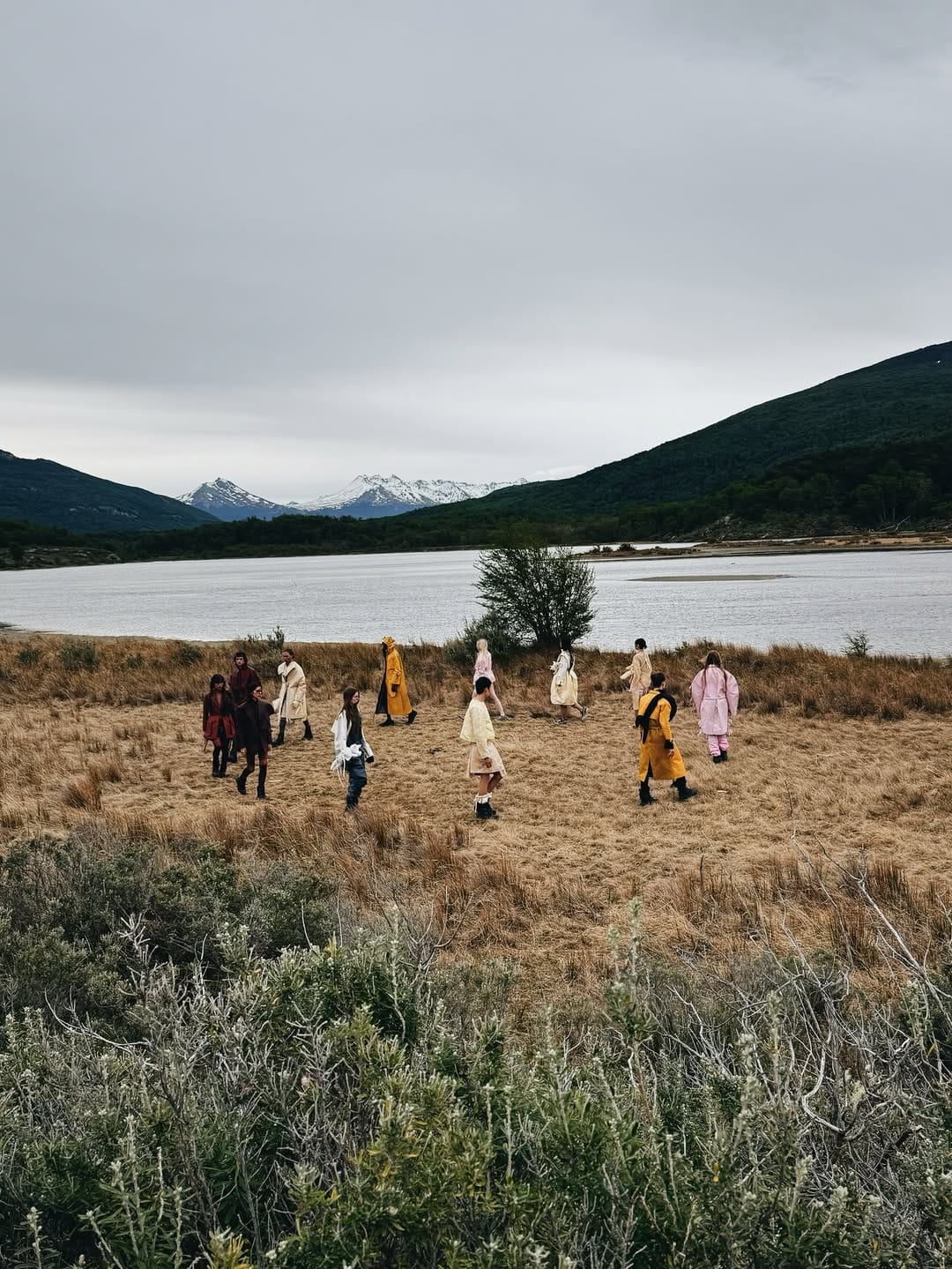
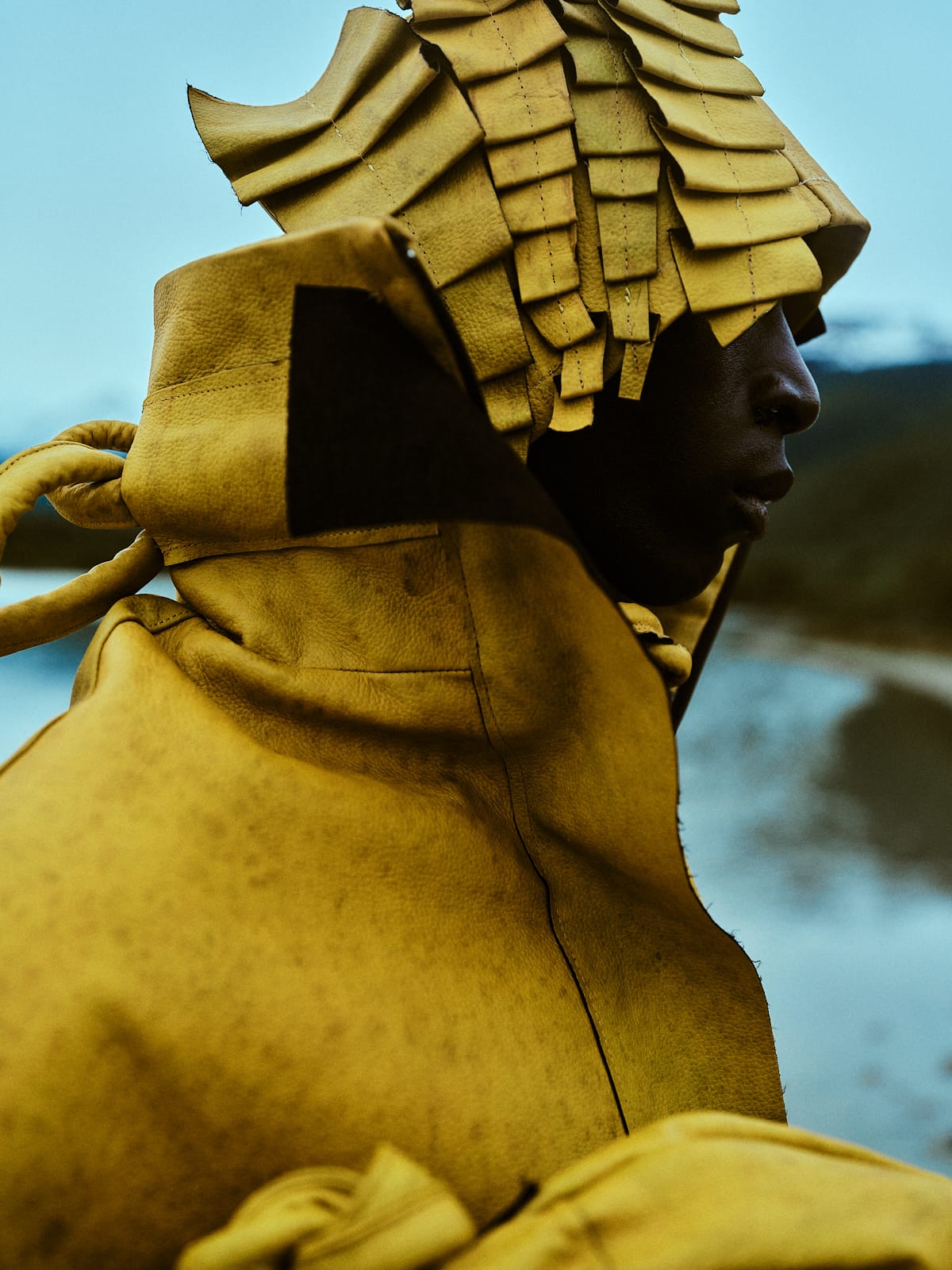
Over several months, both teams collaborated to explore Celium™ in three variants — Original, Translucent, and Espumante — experimenting with densities, textures, and finishes. For the first time, an entire collection was created exclusively using this cultivated material. Marie Claire México noted that the collaboration pushed the limits of biomaterial innovation through manual pleating and laser-cutting techniques, proving that Celium™ can move, fold, and breathe like fabric while maintaining its natural integrity.
Fashion Network described the result as “a narrative about the future of materials and the limits of design,” where art, science, and ecology merge into one living expression.
Set within Tierra del Fuego National Park, the presentation unfolded across three days of exploration — through forests, rivers, and glaciers — culminating in a performance accompanied by sound artist Malala Lekander, whose work drew inspiration from tides and southern winds. As Le Banana and FashionUnited reported, the experience blurred the line between collection and landscape, allowing the garments to exist as extensions of their environment.
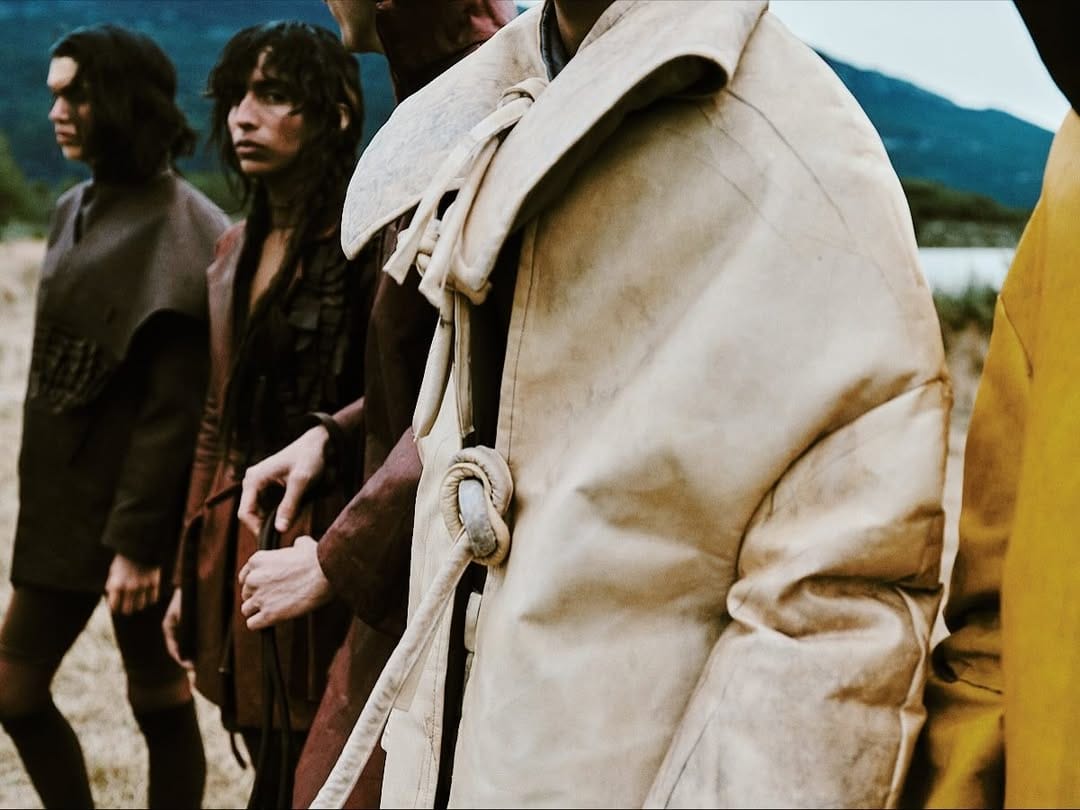
Each look echoed the natural world: pleated shapes reminiscent of kelp forests, tones of pink and ochre inspired by the Fuegian landscape, and soft, sculptural volumes shaped by Celium™ Espumante.
Supported by the Tierra del Fuego Tourism Institute (INFUETUR) and local partners, the event bridged fashion, innovation, and regional promotion. Media outlets including Vogue Latam, L’Officiel, Marie Claire, DMAG, Numéro, and Clarín highlighted the collaboration’s cultural and environmental resonance. As noted by Paralelo54 and Red Int TDF, the partnership also demonstrated how creative alliances can generate both artistic and economic value, positioning Ushuaia as a hub for sustainable design.
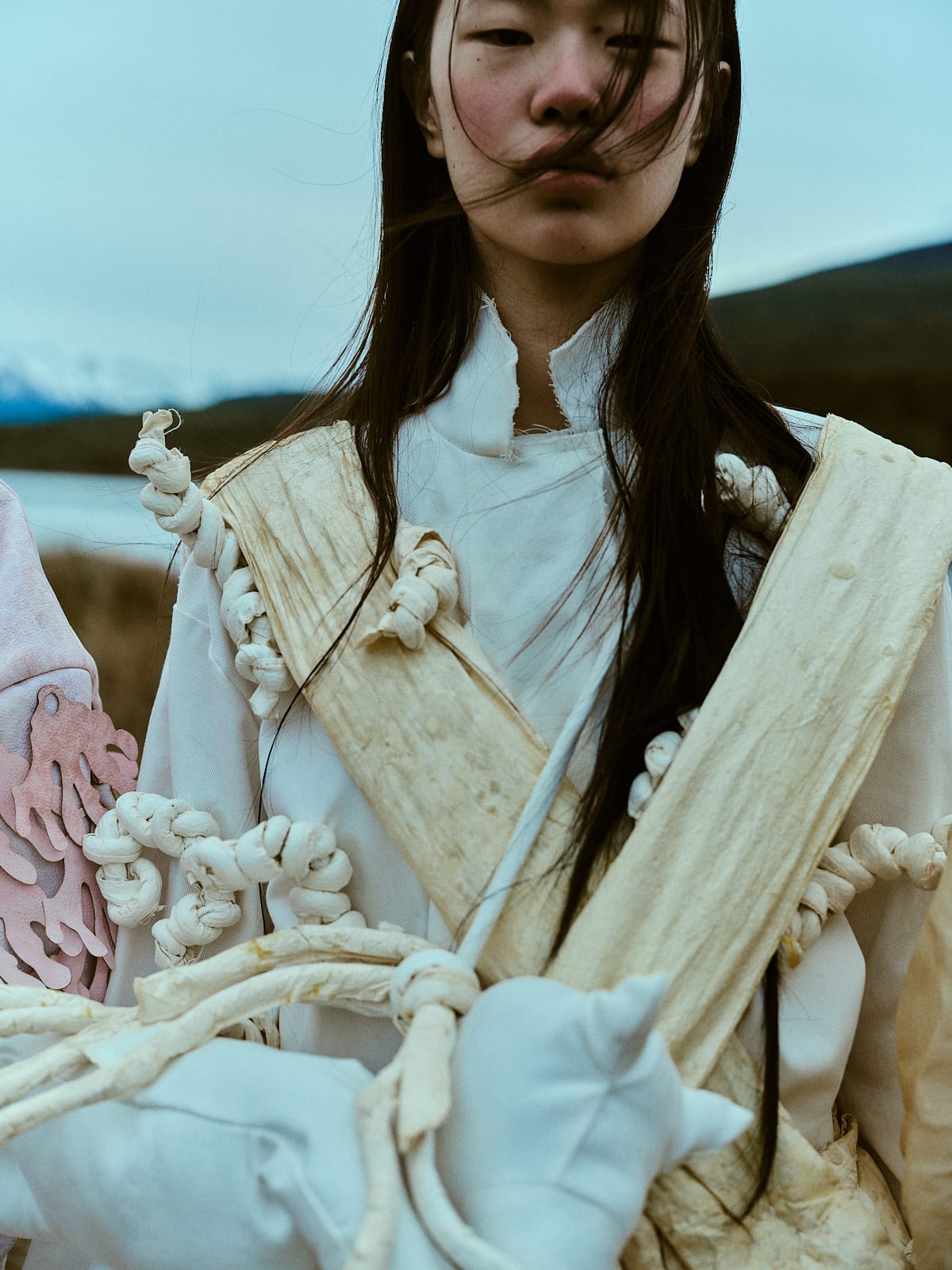
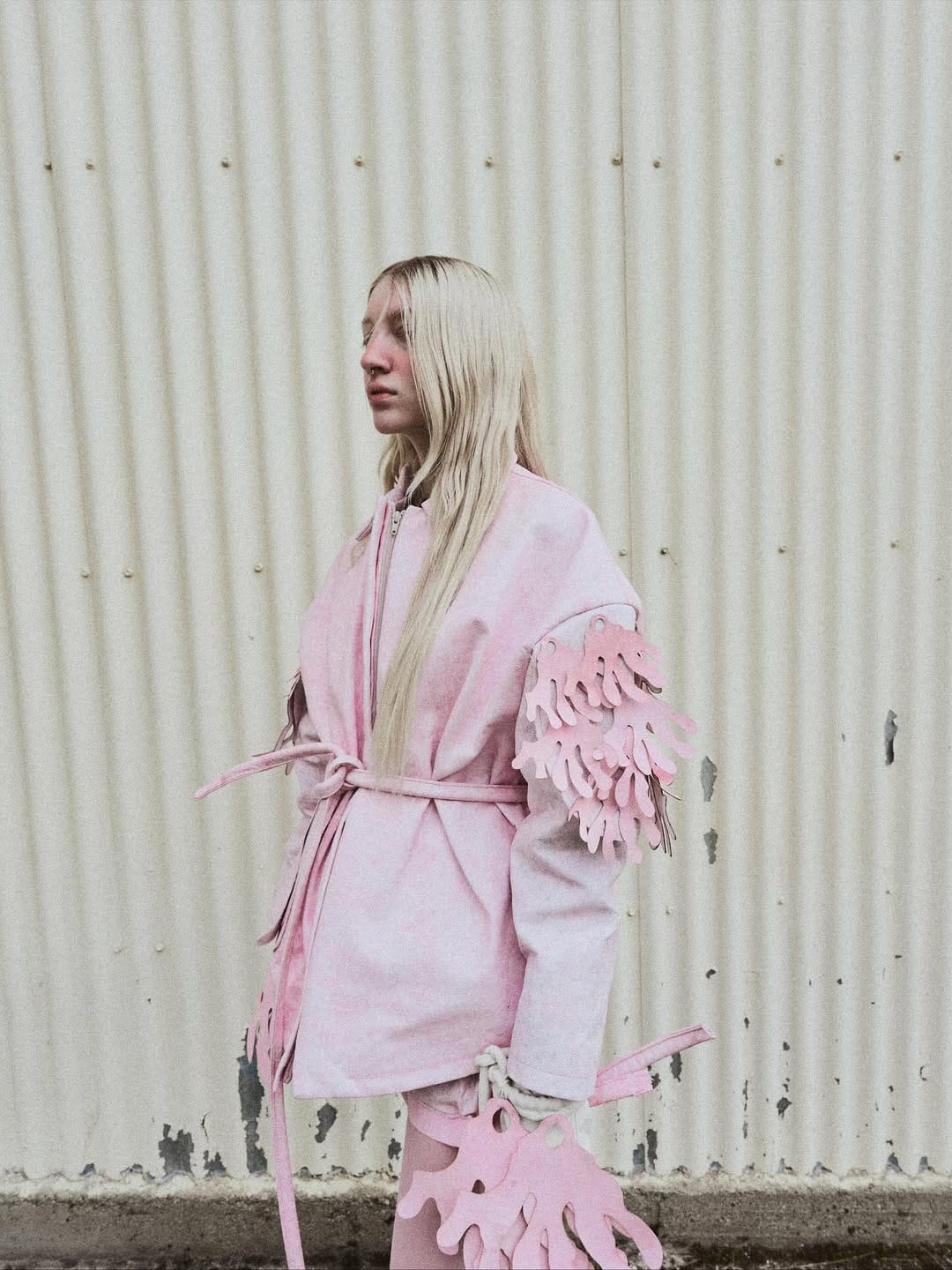
El fin del mundo, principio de todo stands as more than a collection — it is a manifesto for creating from what lives, for materials that grow rather than being extracted, and for a future where humans design in harmony with living systems.
At Polybion, the collaboration with Nous Étudions reflects a shared belief: that true sustainability begins with curiosity, collaboration, and respect for the biological processes that make creation possible.

